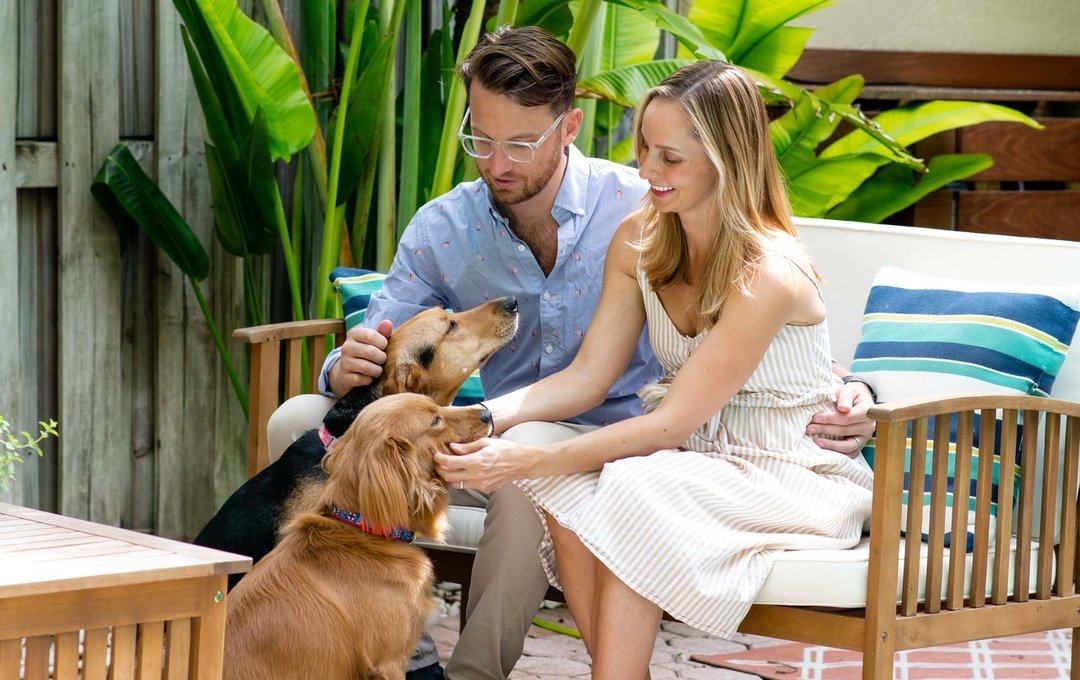
The Animals’ Choice For Beauty Shopping: Emerging E-tailer Good Cubed’s Assortment Is Completely Cruelty-Free
Beauty product purchases tend to have consequences for people, the planet and animals that a growing number of consumers rather avoid. At e-commerce concept Good Cubed, they can avoid them without doing substantial research on every item they’re interested in buying. “Good Cubed is an online store where you can come and shop with a clean conscience. It’s all 100% cruelty-free. There are no harsh chemicals, parabens or sulfates,” says Nicole Barton, who founded Good Cubed with husband Zachary Elliott. “It’s just good beauty from good brands that care about producing excellent, high-quality products.” Cruelty-free merchandise is Good Cubed’s calling card, but it’s also placed a priority on communicating about palm oil, coral reef safety, gluten, and other environmental and ingredient concerns impacting consumer behavior. Beauty Independent talked with Barton and Elliott about the concerns swaying beauty product choices, handling important tasks in-house, amassing a differentiated selection, disappointing returns on investment from sponsored reviews and Good Cubed’s surprisingly wide audience.
What were you doing before Good Cubed?
Barton: Zach, my husband, and I met in law school in New York eight years ago. Then, we moved to Miami and started a law firm doing transactional law. We did that for a couple years until our skills and interests took us down a different path. We are huge animal lovers. We have two dogs. If I had done everything differently, I might have been a vet or an oceanographer. When I was a teenager, I became really interested in cruelty-free products. That’s when I realized the majority of them weren’t cruelty-free. I started going out of my way to find cruelty-free products. I found I needed to look at several blogs, and there was a lot of conflicting information. Some companies would say they’re products are cruelty-free, but their ingredients might be tested on animals. There are no regulations around it.
Because it was my passion, and it was difficult to find cruelty-free products, our friends said, “Why don’t you start a cruelty-free site as a side business?” But we went full force and did it full-time. At Good Cubed, we support the Rescue + Freedom Project. It rehomes animals that have been tested on and gives them a second chance instead of being put down. We have really great products that aren’t tested on animals and, with them, we hope to create more demand for cruelty-free products.
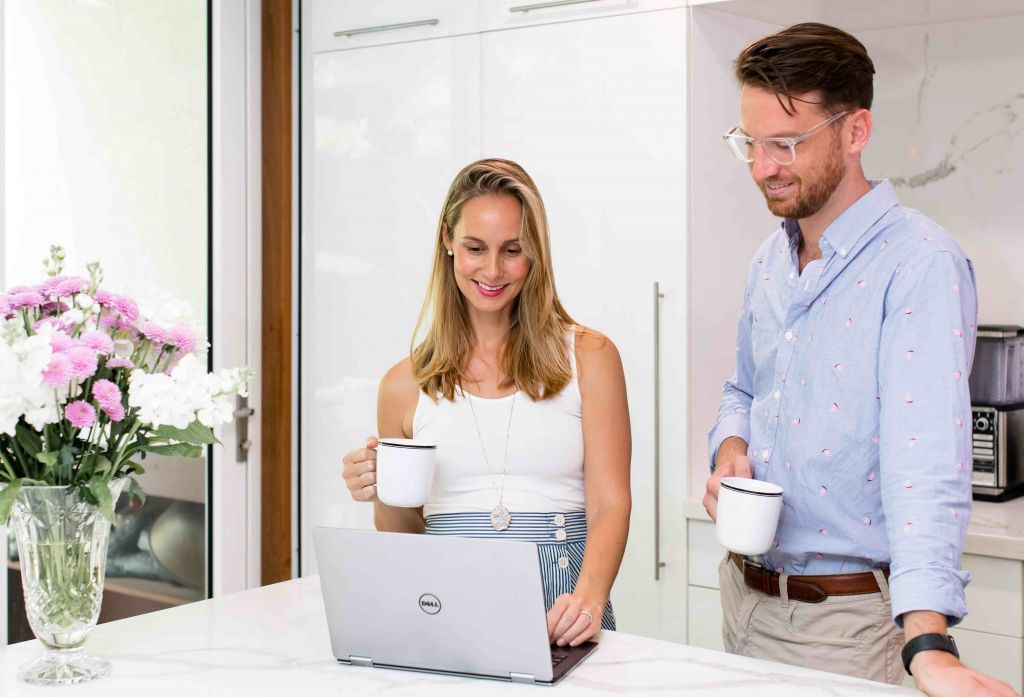
When did the website launch?
Elliott: The business was started in February 2017, but we didn’t launch the website until October, and that was a soft launch. It was up and running well by November and December, and we’ve been happier with it within the last month.
Barton: We hired a bunch of professionals at the beginning and realized they didn’t deliver what they said they would. So, we’ve taken everything on ourselves from the website to marketing to logistics to customer service. We have finally gotten a hang of it and are very excited going forward.
What did you want Good Cubed to look like?
Barton: Beauty can be very feminine. We wanted it to be more gender neutral and a really positive, inclusive shopping experience for everybody. We didn’t want it to be too feminine or glitzy. We wanted it to be a bright, clean site.
Elliott: You can sort by price and what kind of product you like, but what we do that you don’t see other sites do is we have drilled down specific filters for products that are palm oil-free [as well as nut-free, GMO-free, gluten-free, vegan and coral reef safe, among several filters]. Every single product is cruelty-free and clean on our site, but there are other things that people are interested in, and we want to raise awareness about them. Beauty is a lot like eating. I may not have a problem eating gluten, but a lot of people do, and it affects you if you put it on your skin, so we have the gluten-free filter. We want to make it easy for people to find exactly the product they want in a few clicks.
What does the name mean?
Barton: It’s short for shop good, look good, do good. You can shop for great products from clean, effective brands. It’s good to the third power. It’s a name that makes people think, “What does that mean?” It’s kind of interesting, and it stuck.
What consumer concerns are revealing themselves through usage of the filters?
Elliott: Palm oil is definitely starting to pop up as something people are concerned about. We originally cut out products that just had palm oil in them, but now we’ve found all these other derivatives that can be from palm oil. So, we’ve gone back and asked all the brands where they are deriving molecules from. We make sure we have all the details covered.
Barton: Coral reef safe is popping up in the news now, and people are looking for that. A lot of people really like our vegan filter.
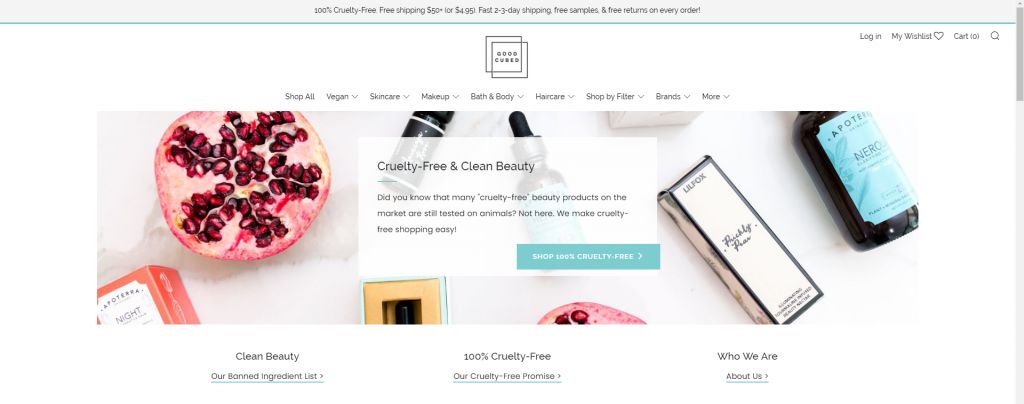
What assortment did you try to put together at the outset?
Elliott: At launch, we were more focused on makeup. We were going toward 60% makeup and 40% everything else, but we’re quickly running in the other direction. Skincare sells better and, from our point of view, it’s a lot easier to deal with. It’s easier for us to sell a single cleanser than one makeup product that comes in 10 colors, and it can be very hard to predict what people want with makeup. Right now, we’re probably 60% everything else and 40% makeup. We’re not adding new makeup brands at the rate we are adding other brands. We’re really looking at skincare, bath and body, haircare and deodorant to add, but we haven’t been looking at new makeup to add.
How did you look for brands?
Barton: It was so overwhelming. There are so many out there. A lot of our products are certified cruelty-free by Leaping Bunny, so we went to Leaping Bunny for brands, and looked at price range, ingredients and target markets. It took months to do. We wanted smaller brands that a lot of people don’t know. We know it’s hard to be a small business and get your name out there. We thought we would have a good mix of smaller and bigger brands to balance each other out and bring people to the site.
Elliott: We also made a list of our competitors and went through their brands as well as going through PETA and Leaping Bunny. We listed 200 to 400 brands, and we went systematically through them to whittle them down by finding the best combination of great products and great packaging.
How many brands does Good Cubed carry today? What are some bestsellers?
Barton: We have 25, and we’re bringing on another five in the next week or so. One of the strongest brands is The Soil & The Sea, and we are one of the only companies to carry them. Kaia Naturals is strong with deodorant and cleansing wipes. Apoterra does really great. We carry most of their line. We really love them. Lilfox from Miami also does well.
How do you evaluate a brand for the assortment?
Barton: We look at their products, site, Instagram and Facebook. We are a small business, and we need people to want to look for these products. We have brands that not a lot of people know about and bigger brands, but we are trying to find some mid-sized brands to people might be looking for. Now that we’ve been around longer, it’s easier to bring brands on board. At the beginning, we would throw a party if a brand came on board. We also look at reviews and who else is carrying them.
We make sure they are 100% cruelty-free. We have them sign a pledge that no ingredient they use is tested on animals, their full products aren’t tested on animals, and they don’t use any third parties that test on animals. They can’t sell in China where animals are tested on, and they can’t have a parent company that tests on animals. We don’t carry any brand whose profits go to a company that tests on animals.
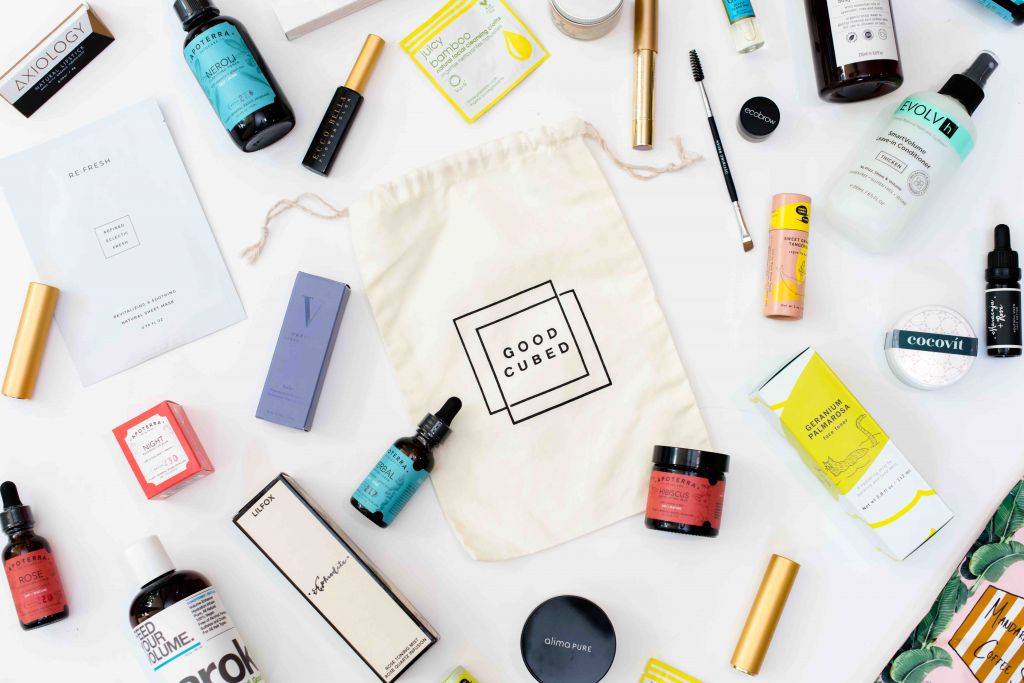
How have you gone about building a customer base?
Elliott: We have been trying a lot of things. We’ve had mixed success on some things and a lot of success on others. We run standard Google advertising. Google has three different kinds of ads: display, shopping and search. We do predominantly shopping and display, and a bit of search. That brings in people every day and gets us new eyes on the website. We have been really trying to step up our emailing. I’m terrified to look at the emails I was sending out last year. They’re probably so awful. We’ve reached out to people to write articles or do sponsored reviews of our products. We haven’t seen a lot of success with that. We will get a bit burst of a couple of hundred people on the site, and we will be lucky of one of them buys something. It doesn’t cover the price you pay the person to begin with for the review.
Barton: At the very beginning, we did a sponsorship with the organization that we donate do. They have an app for your phone called Cruelty-Cutter. If you go to a store, you can scan bar codes to tell if products are cruelty-free or not. We had a pop-up ad on the app, and we’re going to do that again. We have had the products we carry added to their list, so we’re bringing them new products to incorporate. They have a lot of people using their app, and it’s one way we have been getting our name out there.
Who is Good Cubed’s target customer?
Elliott: When we started out, we thought it would be really conscious 25- to 35-year-old women who may be pet owners. It’s much broader than we thought, and the big surprise is the amount of men we’re getting. It’s nowhere near 50-50, but it’s 15% to 20% men, and that’s two to three times as many men as we thought we’d get. We haven’t focused on advertising to men. These are people who are funding us, and it’s a great surprise.
Barton: I would say it’s mostly women 25- to 55-years-old, but it’s not a wellness group or even a mindful beauty group. There are all sorts of people. They are animal-loving people, but we have such great beauty brands that that’s not necessarily an overarching theme. We are still new and figuring out exactly our target customer.
What have you learned about handling fulfillment?
Elliott: We try to make it as simple as possible. We use Shopify to track of all our inventory, but we don’t just keep the inventory in boxes. We have shelving, and each of our products is on its own shelf. Everything is organized and simple, which is one of the reasons we can fulfill quickly and get packages out in 15 to 20 minutes.
Barton: The biggest challenge is trying to keep our inventory small, but also anticipating demand. Some of our stuff sells quickly, and we reorder frequently, causing shipping fees to eat into profits.
Elliott: We don’t have software that’s crunching the data for demand projections. Even if we had the money to implement the software, we are not big enough for the data to be useful.
What do brands do that helps you drive their sales?
Barton: A few of the brands don’t have very good product images, and it makes a huge difference, especially when they provide lifestyle product images and a good range of images. I know it’s an expensive investment to do them, but the brands that have beautiful imagery [are behind] our bestselling products. Also, samples. A lot of brands provide samples for us to use in our packages, and that’s really great. Everyone loves samples.
Elliott: If I go to make an email or if we post something on Instagram, we’re not going to use the Amazon white background image. For example, Apoterra has a lot of awesome lifestyle photos, and we tend to advertise them more than a company that doesn’t have a lot of great lifestyle photos. One of the brands that regularly gives us samples has two of their products among our top 10 bestsellers. That may be a coincidence, but I don’t think it is.
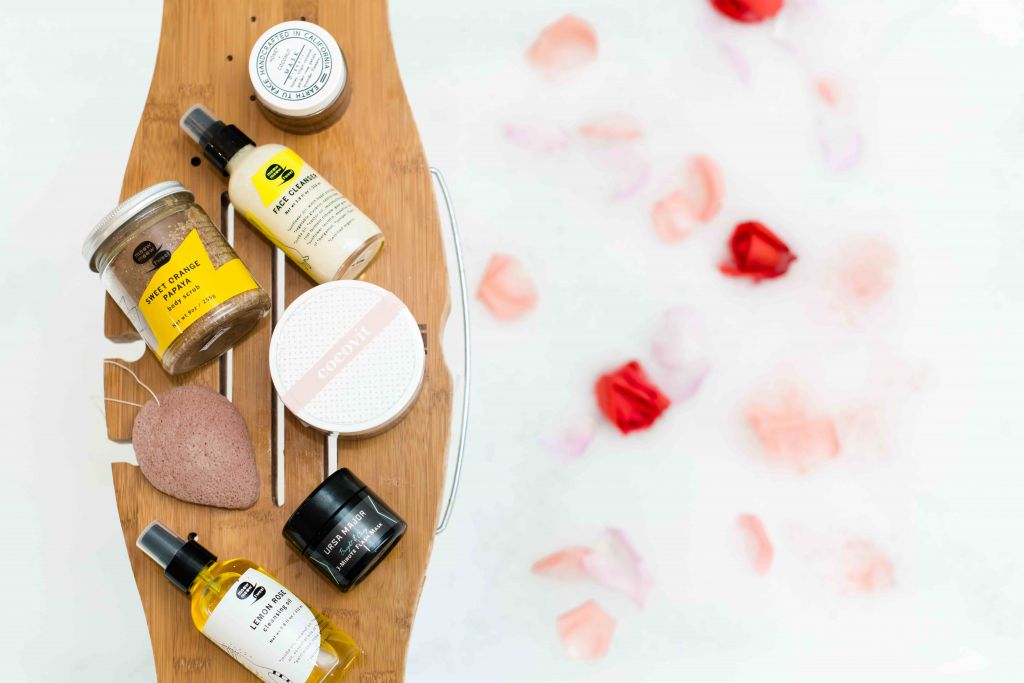
What tweak have you made that’s improved Good Cubed’s business?
Elliott: Every single aspect we brought in-house has been better once it’s been in-house. It’s cheaper, and we do it better because we care. We kept thinking that, if we outsource, we’re going to have awesome experts do it better than us, but that’s never been the case.
How do you want to enhance Good Cubed?
Elliott: Having more choice would be great. People who come to the site may not like the options there are now, and we would prefer to have as many options for people as possible. We also want to write more blog posts. That always falls down the to-do list, but we have done well-researched articles on various topics. We wrote one on coral reef safe. We broke down what it means and what people should be looking for.
Barton: We are bringing on new packaging for the boxes that go out. We will have branded boxes. It’s really difficult at the beginning to order a bunch of branded boxes because you don’t know what size shipments are going to go out. It’s easier with subscriptions to know how big the products are going to be, but our orders range. Someone may buy one mascara or five lotions. But, now that we have data on what people order, we have brought in branded boxes. We have also hired a PR firm to help us get the word out to more people, and we hope to expand our relationship with Rescue + Freedom Project.
What are short-term and long-term goals for Good Cubed?
Elliott: In the short term, from a business point of view, we want to grow revenues. I know that some of our competitors are growing e-commerce sales at 20% to 30% a year, and that would be fantastic. Of course, even more than that would be better. In the long term, it would be great to have this be a fairly large-size business, so people change their buying to be more cruelty-free and have cruelty-free at the front of their minds when they purchase a mascara or lotion. Also, since we give 1% to charity, if we have $100 million in revenue, we could give $1 million to charity, which would be awesome.
Where do you see the clean, cruelty-free beauty segment headed?
Barton: I hope it’s not a trend. It kind of came in as a trend, and it’s amazing how it’s taken off. I’m really excited to see more and more people familiar with the fact that things need to change. There is no denying that animals have a lot more rights and a bigger place in society than they have ever had. Even in divorces, the animals’ best interest is increasingly being considering when determining who keeps them. I’m getting a little emotional talking about it, but it all means it’s just going to get better for clean and cruelty-free beauty.

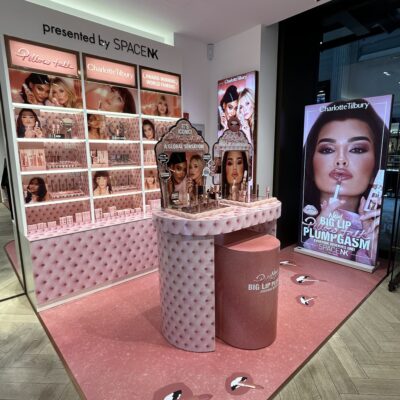
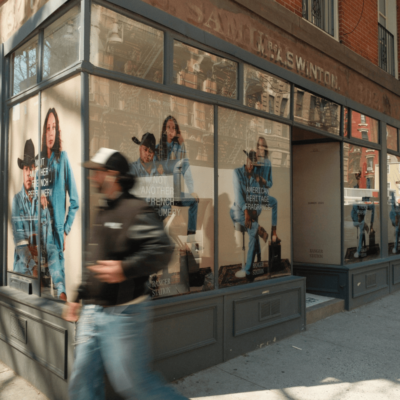
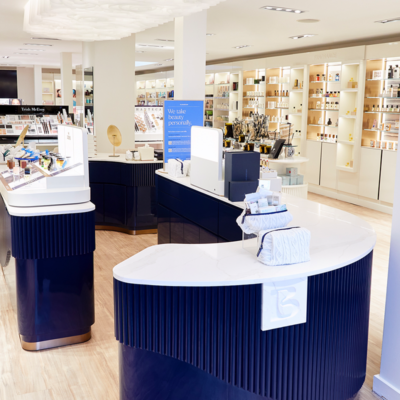
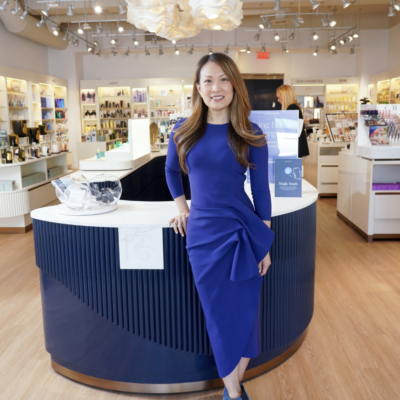
Leave a Reply
You must be logged in to post a comment.